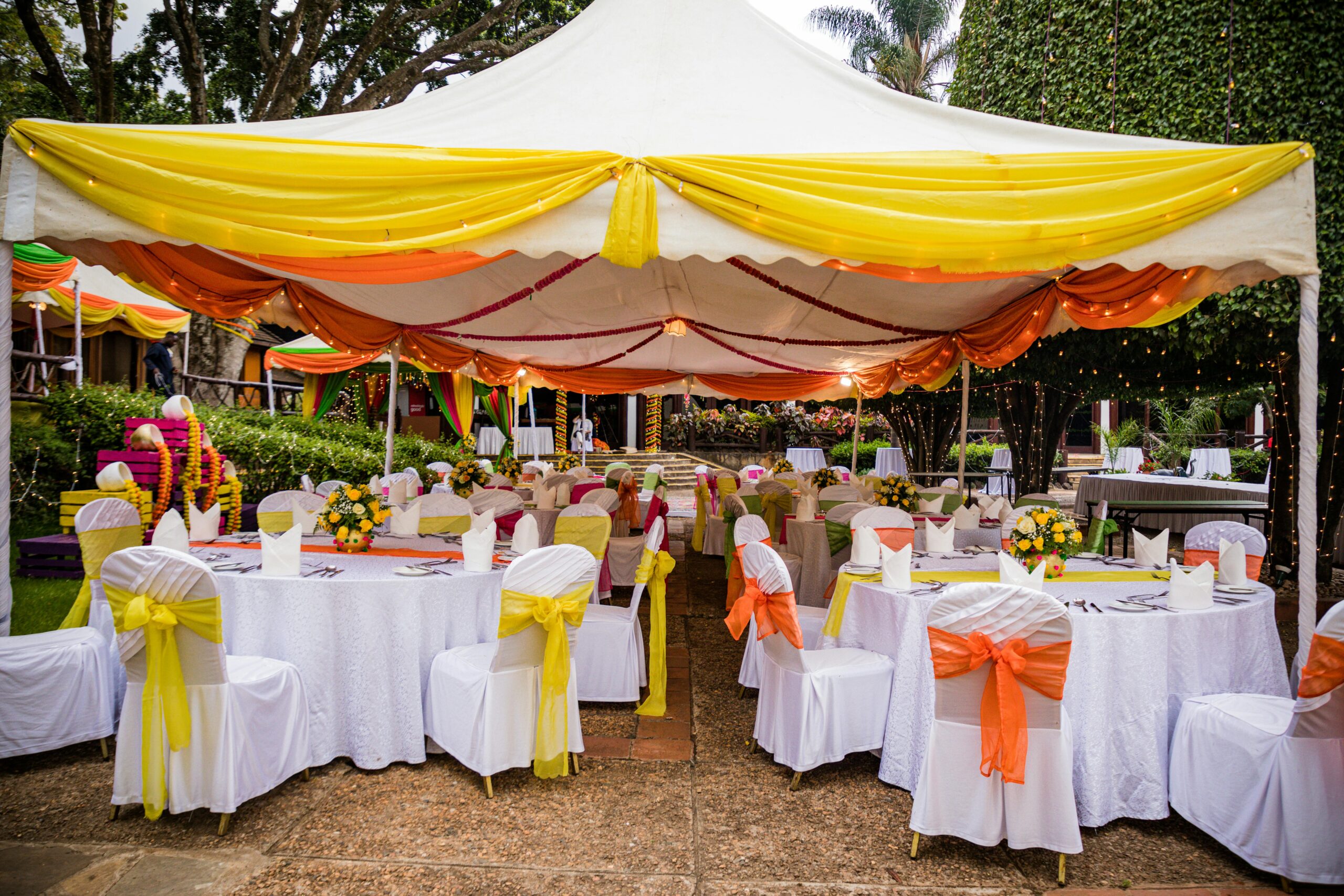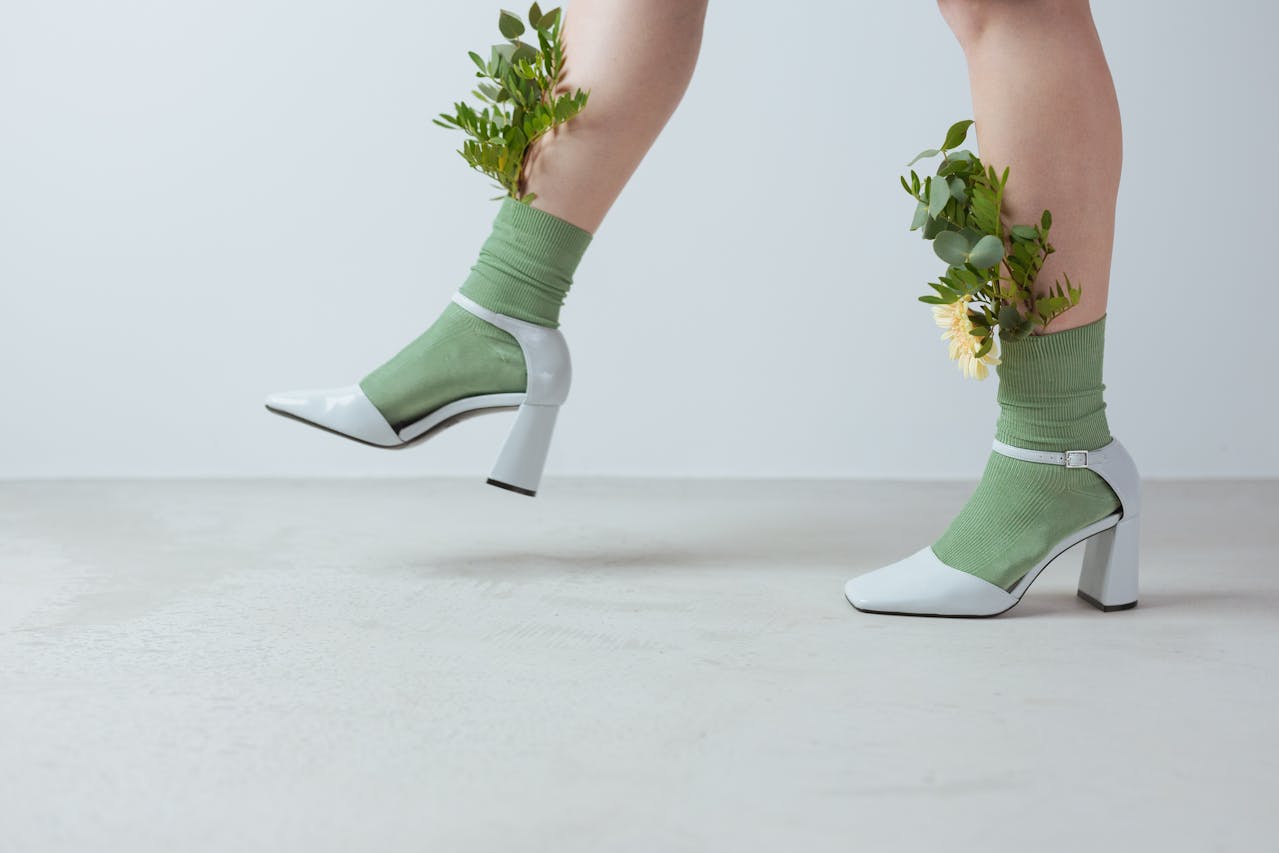
Whether you are having a hilltop wedding, a groundbreaking ceremony, or just tailgating with your friends, having an outdoor event always comes with the concern of the weather spoiling the day. Will it rain, soaking both the decor and the guests? Will the scorching sun leave you and your guests sunburnt and dehydrated? In asking these questions you are bound to come upon the most obvious solution: a tent. But how do you know if you really need a tent? How do you know what size tent to rent and what accessories you need? How do you prepare your yard, venue, or other event site for tent installation? These are all very useful questions, and we would be happy to answer them.
Do I really need a tent?
Between the cost of the tent itself, delivery and installation fees, and the cost of any add-on features, tents can get very expensive very quickly, so it is good to make sure you need one before you rush to put your deposit down.
The most obvious reason to need a tent would be if your event is happening in the dead of winter or the height of summer. You don’t want to subject your guests to extreme temperatures for long periods of time, so it’s best to have some shelter available for them to recuperate and stay comfortable. A tent is also great for protecting any food items from the elements. The last thing you want to see at an outdoor summer wedding is a melted cake.
Another obvious reason to have a tent would be in the event of rain. No one wants to stand outside in a downpour. If you’re planning your events a couple weeks or even months in advance, you won’t have the luxury of knowing the weather forecast, but that doesn’t mean you can’t rent a tent just in case. Speak with possible rental companies about their weather and cancelation policy. If you are renting additional items, you may be able to add or remove a tent from your order once the forecast is known.
A less obvious reason to have tents at your event would be for vendor cover. If you are enlisting the help of vendors at your event, make sure to ask what they require for an outdoor setting. Many musicians and bands will require cover to protect their instruments and equipment, and caterers will sometimes request cover for a staffed buffet or bar.
What size tent do I need?
Deciding what size tent you need may seem complicated, but it doesn’t have to be. While there may not be a “one size fits all” when it comes to tent sizing, it is fairly simple to calculate the size you need.
The first, and most important, thing you need to do is decide what you want to fit under the tent. An event for 50 people is going to require very different sized tents based on what is needing to be covered. Do you need space for conference seating and a stage? Are you wanting to fit your entire reception under the tent including banquet tables, dance floor, buffet, and DJ? Knowing what you want to fit under the tent will help you calculate how much space you need.
In general, a 10×10 foot square, or a 100 square foot space, can fit 14 people in conference style seating. Common banquet table sizes come in 60-inch rounds, 6-foot rectangles, and 8-foot rectangles. When used as banquet seating, these tables require 100, 80, and 90 square feet of space respectively. 8-foot rectangle tables are common for buffets, and they should be allocated 100 square feet of space each to allow room for guests to crowd around them. As far as large fixtures such as dance floors and stages go, calculate the size of the item and add at least 2 feet of walking space on each side.
Once you have calculated the square footage that you need, you can then find the right tent size for your event, whether it be a 20×30 with 600 square feet of space, or a 40×100 with 4000 square feet of space. If you are still unsure, you can always contact a tent rental company and ask for their size suggestion based on your needs.
What accessories do I need?
Including the right accessories can make or break your tent experience. The main accessories you need to consider are sidewalls, temperature control, and lighting.
While a tent’s canopy is bearing the brunt of the work in providing shade and keeping out rain, sidewalls are great as a backup defense. During the colder months, enclosing a tent on all four sides goes a long way to trap in heat and keep your guests warm. However, trapping in heat is not ideal in the hot summer days, so it’s best to leave the sides open to allow for ventilation. If you need more shade than the canopy provides alone, you can add walls on the east and/or west sides of the tent to shield your guests from the rising or setting sun. Sidewalls are also great for preventing wind-blown rain from drenching your guests from the side.
If you are concerned about the temperature inside your tent, you might want to consider some form of temperature control. Air conditioners and tent heaters are best used with a fully enclosed tent. That being said, air conditioning for tents can be very expensive, very loud, and unfortunately don’t work very well. A better option is to keep your tent open and use large outdoor fans along the perimeter of the tent to assist with airflow. If you need an extra boost of heat in your tent during the winter, you can rent a tent heater to sit outside your tent and blow in warm air. Propane patio heaters should NOT be used in an enclosed tent, but they can be useful for activities that happen outside the tent.
If your event is taking place around or after sunset, you will need to consider how to provide light inside your tent. If you want to keep it dark, moody, and romantic, you can definitely stick to candlelight, but if you need more light in the tent you may consider renting bistro lighting.
How do I prepare for tent installation?
If you want to rent a tent for your event, there are a few logistical things you need to consider. You will want to make sure you have the right space and surface to build the tent on, and you will need to make sure a tent is allowed at your venue.
When you rent a tent, you obviously want to make sure you have enough space to put it in. This not only includes the square footage, but also the vertical space. Tents will differ in height depending on the style and size, and you’ll want to make sure there are no trees, powerlines, or other overhanging features to get in the way. You also need to consider what surface you want to put the tent on, as tents need to be staked into the ground in order to be built safely. Dirt and grass are always tent friendly (just make sure to mark any underground waterlines), but tents can also be built on concrete or asphalt if stake holes are drilled.
If your event is happening at a property you don’t own, you will need to make sure you are allowed to put a tent up, especially if the tent needs to be staked into concrete. Most outdoor venues will allow you to build a tent on their property if another outdoor shelter is not provided, but some may have stipulations on the sizes allowed and the locations they are allowed to be built.




